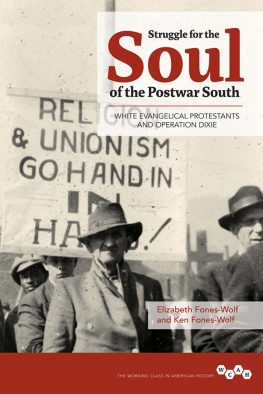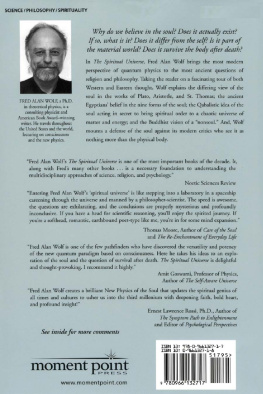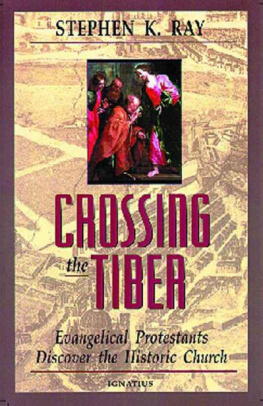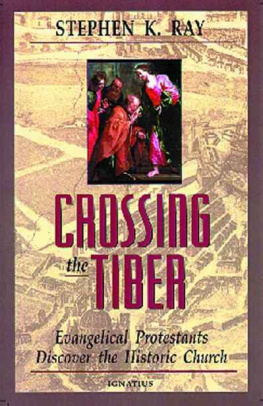Struggle for the Soul of the Postwar South
White Evangelical Protestants and Operation Dixie
ELIZABETH FONES-WOLF AND KEN FONES-WOLF
UNIVERSITY OF ILLINOIS PRESS
URBANA, CHICAGO, AND SPRINGFIELD
2015 by the Board of Trustees
of the University of Illinois
All rights reserved
Manufactured in the United States of America
1 2 3 4 5 c p 5 4 3 2 1

This book is printed on acid-free paper.
This book has been made possible through grants from the West Virginia Humanities Council, a state affiliate of the National Endowment for the Humanities, and from West Virginia University. Any views, findings, or recommendations do not necessarily represent those of the West Virginia Humanities Council or the National Endowment for the Humanities.
Library of Congress Cataloging-in-Publication Data
Fones-Wolf, Ken.
Struggle for the soul of the postwar South : white evangelical Protestants and Operation Dixie / Ken Fones-Wolf, Elizabeth A. Fones-Wolf.
pages cm. (Working class in American history)
Includes bibliographical references and index.
ISBN 978-0-252-03903-4 (hardback)
ISBN 978-0-252-08066-1 (paperback)
ISBN 978-0-252-09700-3 (e-book)
1. Congress of Industrial Organizations (U.S.)History. 2. Labor unionsOrganizingSouthern StatesHistory. 3. Labor movementReligious aspectsChristianity. 4. EvangelicalismSouthern StatesHistory. 5. Christian conservatismUnited States. 6. Social classesUnited States. I. Fones-Wolf, Elizabeth A., 1954II. Title.
HD8055.c75f66 2015
331.880975'0904dc23 2014030669
PREFACE AND ACKNOWLEDGMENTS
For more than three decades we have been interested in the religious beliefs that animated a good deal of working-class life in America. As we rummaged through archival collections, newspapers, oral histories, memoirs, and other documentsoften in the search for information about some other topicwe have been struck by how often matters of faith surfaced at the most unexpected times. Movements that strove to unite working people around issues of social justice have either had to incorporate the sacred into their programs or run the risk of having their nonbelief exposed, often to the detriment of worthy projects. In coauthored articles and in our separate works, we have written on some of the efforts that the trade-union movement made to attach a religious meaning to their undertakings, ranging from the Gilded Age to the 1950s. Still, we have always wanted to tackle jointly a moment in which faith appeared to be a central element in shaping how working people responded to a major union-organizing campaign. The CIOs Operation Dixie, which has not been the subject of a book-length study for a quarter century, seemed to us to be that moment.
Certainly, we knew of the importance of the sacred in southern society. One of the descriptors typically used for the South has been Bible Belt. Historians, from Christine Heyrman in colonial times to Bertram Wyatt Brown in the nineteenth century to Charles Reagan Wilson in more modern times, have written about the southern spirit and identified religion as one of the pillars of southern culture, one that was instrumental in propping up the entire edifice. For the vast majority of southerners, that religion was evangelical Protestantism. Ultimately, if the CIO was to be successful in bringing unions to southern working people in 1946, its organizers would have to understand their attraction to evangelicalism. What better place to investigate how religion intersected with the hopes, dreams, inclinations, and fears of working people considering whether or not to throw in their lot with a labor movement that sought to dramatically challenge southern society?
Equally important, the CIOs campaign had great ambitions. By the end of World War II, the CIO had established itself in many of the nations core industries, and union density was climbing toward its highest level (about one-third of the workforce), which it would reach in the early 1950s. With greater success, CIO leaders believed that they could also affect the nations political climate, reenergizing New Deal liberalism. The weak link for organized labor was the South. The region continued to resist union-driven collective bargaining and the liberal Democratic politics that were intertwined with union growth. Consequently, not only was the CIOs Southern Organizing Campaign an ideal laboratory to examine the impact of religion, it was also a social movement that would have a significant impact on the sustainability of the New Deal system of labor relations. If organized labor failed there, the region would become a refuge for corporations that sought to escape the reach of collective bargaining and liberal politics. For us, the question loomed: What difference did evangelical Protestantism make in working peoples feelings about not just union membership but also about the more expansive liberal state that national unions desired?
The CIOs Operation Dixie coincided with an upheaval in race relations and a debilitating red scare that complicated its chances for success among the white workers whom the campaign targeted. The choice to make white workers the focus was and continues to be a subject of controversy. Black theology in the main was less subject to fears about the Communist menace, more accepting of collective social action, and obviously more interested in overturning the racial status quo. Would not the CIO have enjoyed more success by playing to that strength? At the very least, would not Operation Dixie have left a more heroic legacy? But that was not the way that CIO strategists understood their objectives. They felt that the CIO needed to achieve breakthroughs among the white workers who made up the bulk of the Souths industrial workforce, especially in textiles, the industry that presented the greatest challenge to the spread of unionism in the region. Once achieved, CIO leaders reasoned, the organization of black workers would follow easily, and organized labor would realize its desired density. Given the CIOs understanding of what constituted success, we decided to focus on the religious culture of the white working class and its response to Operation Dixie. That meant grappling with how white evangelical Protestants felt not just about unions and liberalism but also how they reacted to Communism and black aspirations for equality. We are not satisfied with many depictions of white working people that emphasize only their race or class or gender. Instead, we have tried to give equal weight to their religious beliefs to see how those beliefs shaped their understanding of the threats and opportunities they faced.
To understand the faith of white workers has also pushed us to question the notion of a southern religion (by which many religious historians mean white southern Protestantism). If, in fact, many white southern churches were mired in a sort of cultural captivity that diminished their social conscience, it is not the case that they were stagnant. By examining the popular religiosity of the white working class, then, we hope to give a richer picture of how working people thought about the changes proposed for the postwar South. If the outcome for Operation Dixie appears to have been inevitable, employers, union officials, ministers, politicians, and the workers themselves perceived a contingency that gave real urgency to their actions. That is the struggle that was waged for the soul of the South.

 This book is printed on acid-free paper.
This book is printed on acid-free paper.







